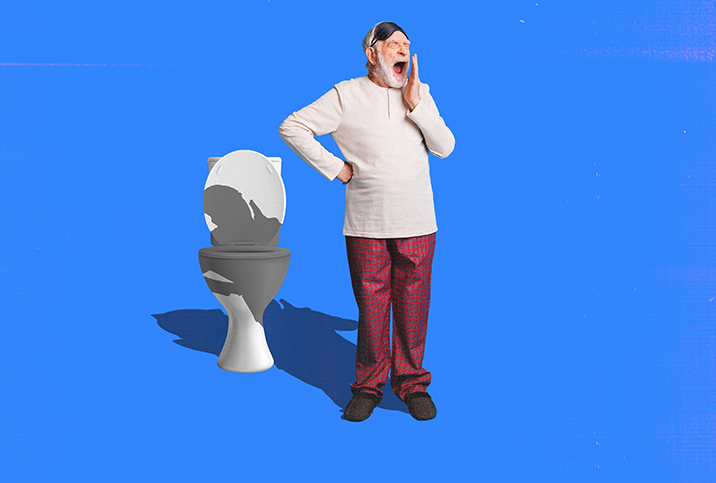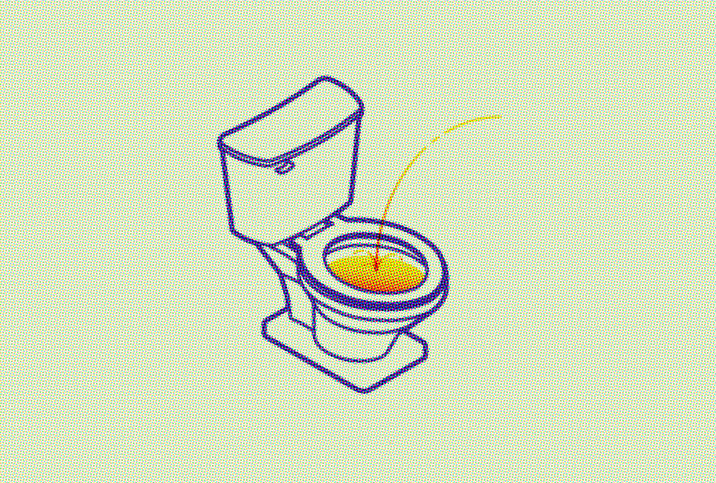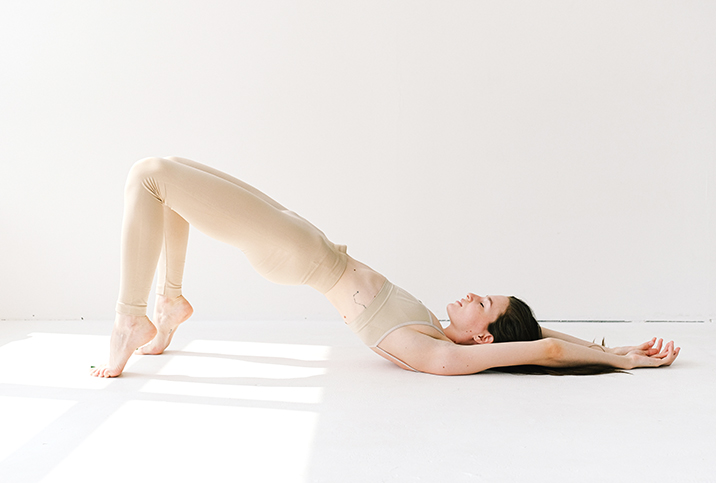That Midnight Pee Might Signal Something Serious

There are few things in life more frustrating than constantly waking up in the middle of the night, but that's a major issue for about 50 million people in the U.S.
This nighttime peeing condition—known as nocturia in medical circles—is not easily diagnosed: Only about 10 million impacted individuals get an official diagnosis, and it's estimated only 1.5 million eventually receive treatment.
Do you think you may have nocturia? Are you tired of your need to urinate affecting the quality of your sleep? Let's dig deeper to better understand what nocturia is, why it happens, potential causes and explore the recommended methods of treatment.
Getting to know nocturia
We've all been interrupted from our sleep to pee before, but that doesn't mean you necessarily have nocturia. Nocturia specifically refers to the act of having to urinate frequently throughout the night. The word "frequently" can be a bit subjective—everyone has different urinary habits, after all. In fact, researchers and the medical community at large often have different definitions of nocturia.
Generally, though, if you regularly wake up more than twice during the night to pee, then you may have nocturia and should schedule an appointment with your doctor.
Nocturia most frequently occurs in the elderly, particularly people over 60, but can affect people at any age. This disorder has a range of other symptoms you may experience that can play a key role in the diagnosis process, including:
- Frequent urination during the daytime
- Urinary tract infections
- Fatigue upon waking (particularly if nocturia is impacting your sleep cycle)
"Normal adults should be able to sleep through the night without waking," said Caroline Packard, DPT. "Just like Pavlov showed in his studies, if we respond to the urge to go to the bathroom at night, the bladder will learn the feedback to that response and continue to send the 'urge' signal to the brain at a certain stretch threshold of the bladder. The more we respond to the urge, the more it becomes habitual and not just a once in a while occurrence. If we respond to the urge to go to the bathroom when the bladder is not at its full volume capacity, we teach the bladder to send the urge to go to that bathroom at a lower volume threshold. Over time, this can continue to get worse as the bladder basically learns to hold less and less volume over but still initiates the urge response more frequently."
There are many factors that might cause you to experience nocturia. Some main causes include high fluid intake (especially of alcohol or caffeine), diabetes, sleep disorders (particularly sleep apnea), bladder infections, bladder obstructions, urinary tract infections, anxiety, certain neurological disorders and pelvic floor issues. Pregnancy can also contribute.
Solutions for constant nighttime urges
How nocturia is treated depends on its cause. For instance, if your nocturia is caused by an infection, antibiotics will be the main treatment.
In most cases, nocturia can be managed, lessened or prevented by employing a variety of methods, including:
- Reducing the amount you drink in the 2 to 4 hours before bed
- Taking medication earlier in the day (if you suspect nocturia is caused by a prescribed medicine)
- Avoiding alcohol and caffeine in the evening
- Urinating before bed
In severe cases, anticholinergic drugs might be prescribed, and these medications can help reduce the symptoms of your overactive bladder. Desmopressin is another prescription option that can help your kidneys produce less urine at night.
Alternative treatment methods
If you're open to a more holistic approach, there are a handful of methods to try. For example, Kegel exercises and pelvic floor therapy are alternative treatments designed to strengthen your pelvic floor muscles and reduce bladder issues.
Women commonly experience nocturia due to pelvic floor issues as a result of a pregnancy or miscarriage, but there are many factors that can lead to a damaged pelvic floor, including holding off from peeing for too long.
Packard suggests, "Try to slowly extend the time between bathroom trips: You can go right before bed and if you wake, take a deep breath, perform five quick kegels—a method known to calm the bladder urge—and see if you can allow that urge to pass. Even if it is just for 5 minutes and that urge returns, at the second presentation, you can respond to go to the bathroom."
Other alternative methods and therapies that have been found to help nocturia sufferers include dance therapy and belly-dancing, as recommended by Jennifer Sobel, an author and personal trainer based in California. Therapies like these have been proven to work key muscles in the pelvic floor that can strengthen your bladder and reduce nocturia symptoms.


















